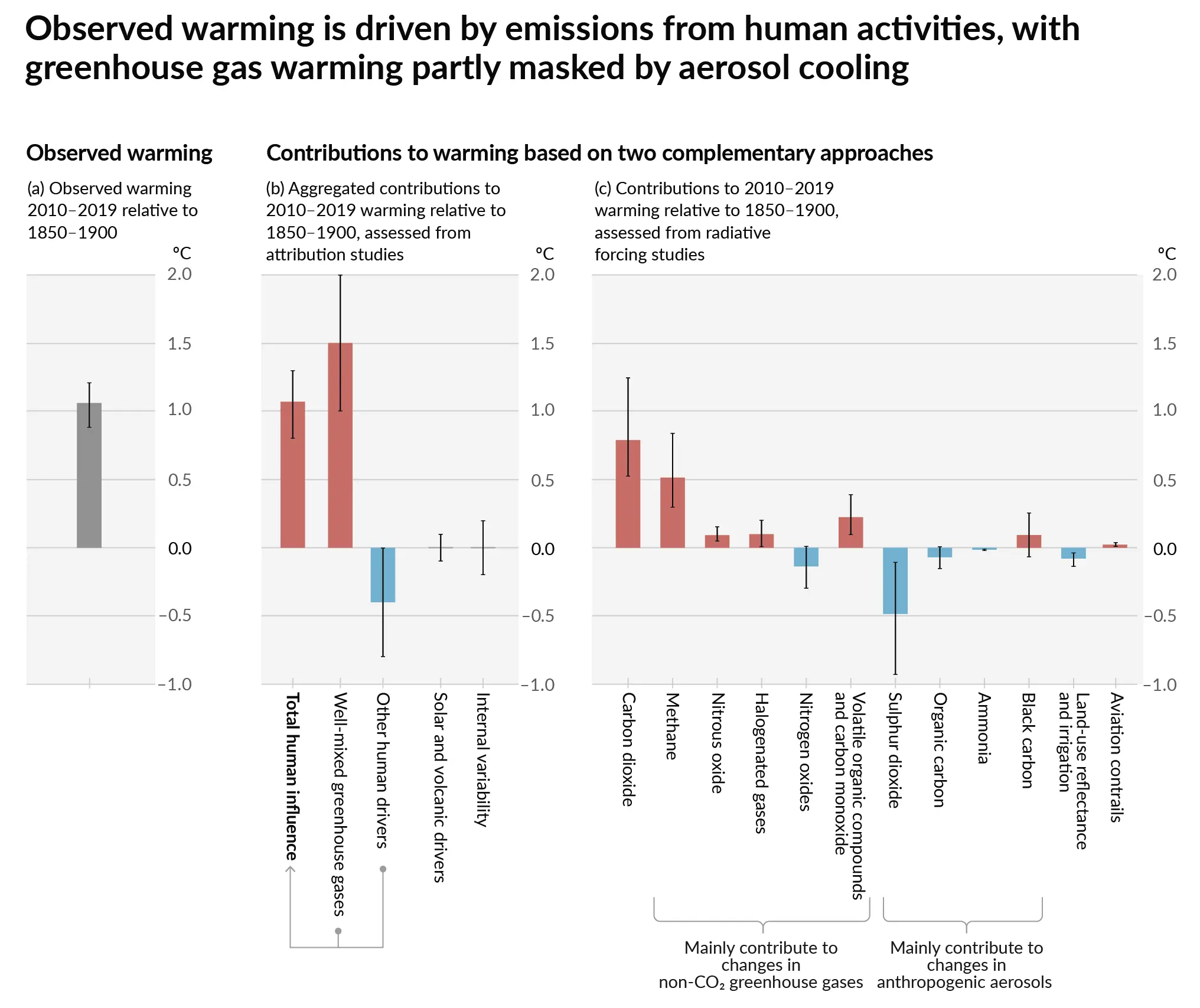@silence7 @empiricism Research has also shown that cutting meat & dairy consumption worldwide would liberate an area of land equivalent to the whole of Africa. That land could be returned to nature and could absorb 16 years worth of global grewnhouse gas emissions.
The potential is certainly there. As well as liberating land for wildlife, there can be zones used for growing food using agroecological farming methods, which can also provide habitat for a variety of wildlife & locations for housing.
FYI, when you write “research has shown” please provide a weblink too that research, so that people that haven’t read the relevant research & or science-based report can read it.
Fundamentally, mono-industrial farming is unsustainable.
@empiricism @silence7 Oxford academic Joseph Poore reported his research in this video https://www.youtube.com/live/zBi8QIc1qXg?feature=share. See also https://josephpoore.com/Science%20360%206392%20987%20-%20Accepted%20Manuscript.pdf and https://animal.law.harvard.edu/…/Eating-Away-at-Climate
could be returned
Yeah. Could be. It is not easy by any means. A lot of this land like large feedlots would need significant rehabilitation efforts. Further, pedological carbon sequestration is slow, and entirely microbially driven
Even converting a hay crop to native prairie is a gargantuan effort.
We really, really, need to manage our lands better and plan for scenarios where they can be used in ways other than their initial land use
It’s only the second biggest Methane emitter in Texas. The members of the State Legislature have it beat hands down.
Methane from cows and other natural processes is part of the normal carbon cycle and will not contribute significantly to long term global warning.
Specifically, all methane carbon from cows is going to come from the air. Methane has 20x co2s warning and over 100 years but degrades back into CO2 with a half life of 20 years.
Carbon from fossil fuels will be there forever and cause warming forever.
Focus on actual carbon emissions from oil and gas instead of being fooled by these distractions.
Taking normal things and then mass producing them isn’t a part of the normal carbon cycle, especially when areas are deforested or changed to make it more accommodating to mass production.
I’d love to read anything to the contrary - it’s not that I believe cow farts is a horseman of a climate apocalypse.
But I find the idea of deforesting, mass animal production, the food used to feed cows being controlled (potentially causes more gas) far more unnatural than some extra cows in a field.
It’s easy to say something is “natural” when referring to an animal existing, but the existence of these cows barely dips a toe in the natural world.
So if there is any legitimate proof that the beef/dairy industry don’t contribute anything beyond the natural carbon cycle I’d love to educate myself!
I don’t disagree that the main cause of CO2 emissions is clearly oil and gas, and that should absolutely be the focus. But to insinuate everything else is absolutely fine to ignore and Oil and Gas is the only source that can be mitigated seems disingenuous - especially since oil and gas aren’t going anywhere anytime soon.
To add on - the feed we give cattle exacerbates methane production in their gut.
Cattle fed high-grain, low-forage diets produce 42% more methane than those fed-low grain, high-forage diets (Boadi et al.,2004). Methane (CH4) is composed of carbon and hydrogen. The formulation of diet influences the carbon: nitrogen ratio of manure, which impacts the amount of methane released. Diets high in grain have higher levels of readily fermentable carbohydrates, which create methane to be released into the atmosphere. Grain type can also change the amount of methane emissions. During the finishing phase, cows fed a corn-based diet released less methane than cows fed a barley-based diet (Beauchemin and McGinn, 2005).
So there is nothing “natural” about the excess methane produced by cattle because if they were naturally foraging the amount produced is lower.
Yeah, cows are adapted to eat grass, but that doesn’t fatten them up. So we give them corn and whatnot instead. It’s a generally unhealthy diet for them. As in, they are literally more prone to disease because a grain diet impacts their immune system.
When you offer a cow grass in one hand and grain in the other, they will always go for the grass.
Taking normal things and then mass producing them isn’t a part of the normal carbon cycle
All carbon coming from cow farts must be created using carbon from the air. If you look at carbon levels in the atmosphere you’ll see the cycle and human activity in this space will just make the cycle more spikey instead of tending up like it does now.
This isn’t a question of “natural good”. Natural sucks. This is good because it poses few long term existential risks.
Fossil fuel emissions are an existential risk. Cow farts and land use can be important if you want to protect biodiversity and such, but not for global warming.
So if we’re taking “natural environmental carbon” and turning it into methane - how is that better??
Trees take carbon out of the atmosphere = natural
Taking an empty field (carbon sink), mass farming cows with a gas-rich diet and not sequestering the methane produced by digestion/waste (methane production) = natural? (and carbon neutral?!)
You’re out to lunch with that opinion my guy. Provide some actual sources aside from a misunderstanding of how the carbon cycle works please.
So if we’re taking “natural environmental carbon” and turning it into methane - how is that better??
Because it’s near impossible to convert enough methane through cows to create a catastrophic temperature change on the whole planet. It’s not like fossil fuels with a cumulative effect.
Again. With the stupidest of arguments.
“this isn’t the sole source of a major problem, and won’t singularly bring about catastrophe. So let’s ignore it entirely, even though there are very simple means to prevent it from happening. it upsets the oligarchy because it’s fatter profits to do nothing.”
You are an idiot.
The question is, are you not aware that you have been greenwashed? or are you trying to greenwash readers?
Humans started agriculture about 12,000 years ago. Especially since the industrial revolution (fossil-fueled machines), animal farming has destroyed vast areas of wildlife habitats (e.g., species extinction) & ruminants such as cows & sheep emit methane.
Most of our #food emissions come from processes on the farm, or from land use change. https://ourworldindata.org/less-meat-or-sustainable-meat
Methane is the #2 change we’ve made to the atmosphere after CO2.
It’s worth addressing.

Methane is a fossil fuel as well.
Emissions from cows are limited by physics to be literally unable to do the damage fossil fuel emissions can. The methane in the ground isn’t.
Not really. Methane has the same physical properties no matter what the source. Only difference is when it breaks down, the resulting CO2 for cattle-sourced methane was has a carbon atom which was likely removed from the atmosphere when the plants the cows ate grew. The IPCC agrees:
Methane from fossil fuel sources has slightly higher emissions metric values than those from biogenic sources since it leads to additional fossil CO2 in the atmosphere
@bioemerl @silence7 @empiricism methane emissions are over 80 times more potent than CO2 over 20 years. We haven’t got 100 years to constrain climate change to anything like safe levels. Given the rapid decay of methane, a full stop of emissions from animal agriculture by a worldwide cessation of meat, dairy and fish consumption would be a quick way to head off climate change. Continues…




